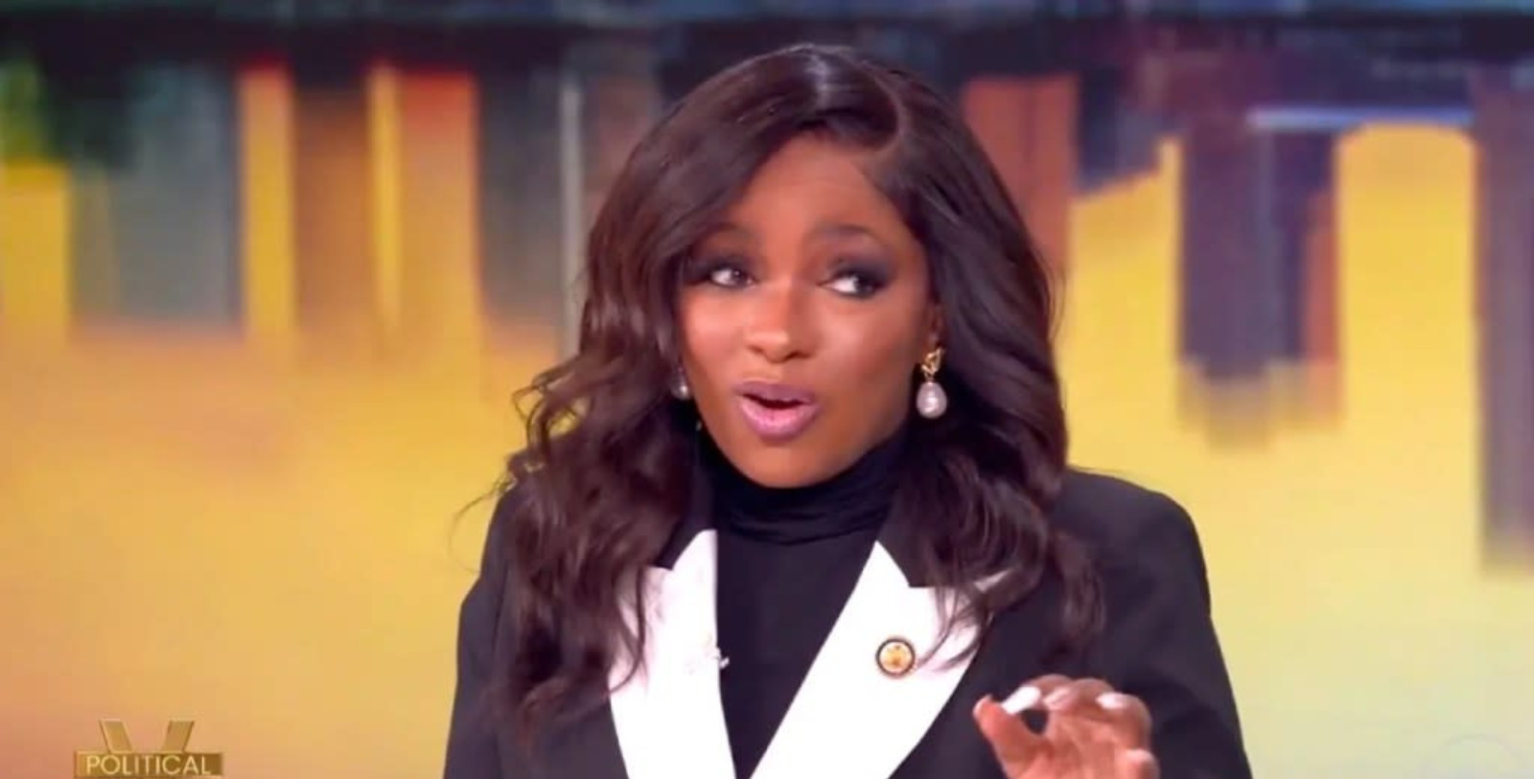WATCH: Jasmine Crockett Becomes Emotional, Discusses Racial Impact on Kamala’s Election Loss
Introduction
Texas Democratic Representative Jasmine Crockett has recently sparked considerable attention following her remarks at the Human Rights Campaign’s annual gala, where she claimed that former Vice President Kamala Harris’s loss in the 2024 presidential election was significantly influenced by systemic racism in America. Crockett argued that Harris, who she believes was the rightful candidate, was denied victory due to deep-rooted racial biases that disproportionately impact women of color. Her emotional statements have generated both support and backlash. In addition, Crockett has made waves with her involvement in movements against Tesla and its CEO, Elon Musk, which have intensified partisan debates. This article takes a closer look at the context of Crockett’s remarks and their broader implications for political discourse and public policy.
The Alleged Impact of Racial Bias in Harris’s Defeat
During her speech at the gala, Crockett passionately attributed the defeat of Kamala Harris to the deep-seated racism that exists within American society. She suggested that Harris’s loss was not merely the result of political dynamics, but that it reflected a systemic bias that often hinders the political success of women of color. Crockett’s comments highlight the continuing struggles of marginalized communities in the political sphere, where racial prejudice can obstruct opportunities for fair representation. While her statements resonate with many who view racial discrimination as a pervasive issue in politics, they have also provoked criticism from others who disagree with her assessment of the election’s outcome.
The Tesla Movement and Calls for Action
Crockett has also become a central figure in the Tesla Takedown movement, which advocates for boycotting Tesla and reconsidering support for its CEO, Elon Musk. The movement, described as a peaceful protest platform, has grown in prominence with Crockett’s involvement. During a nationwide call for action, Crockett expressed her desire for a “Global Day of Action” against Tesla, stating that she hoped to see Musk “taken down” on her birthday. Although Crockett later clarified that her remarks were metaphorical and nonviolent, her words have sparked criticism, with some seeing them as inflammatory. This incident has further fueled partisan debates and raised questions about the responsibility of public figures in their use of language.
Republican Response and Calls for Investigation
Crockett’s comments have caught the attention of several Republican lawmakers, including Representative Andy Biggs of Arizona, who have called for an investigation into her actions. These critics argue that Crockett’s rhetoric, particularly her statements regarding Tesla and her remarks about the 2024 election, could incite violence and may cross the line into domestic terrorism. Citing definitions that include intimidation and violence as components of terrorism, they have called for an official inquiry by the FBI and the Justice Department to determine whether Crockett’s statements warrant legal action. These calls for investigation underscore the growing concern over the potential consequences of political speech in today’s highly polarized environment.
The Role of Media in Shaping Public Perception
The media has played a significant role in shaping public perception of Rep. Crockett’s remarks, with various outlets offering divergent interpretations. News coverage has emphasized different aspects of her statements, from her impassioned defense of Harris and the impact of racism in American politics to her more controversial comments regarding Tesla. Television networks, social media platforms, and online news have provided a wide array of perspectives, with some framing Crockett as a bold advocate for marginalized communities, while others caution that her language is divisive and could further inflame political tensions. The media’s influence highlights the complexity of navigating public discourse, especially when dealing with sensitive issues such as race and political accountability.
The Intersection of Race, Gender, and Politics
Crockett’s comments about Kamala Harris’s defeat reflect broader discussions about the challenges faced by women of color in the political arena. By attributing Harris’s loss to systemic racism, Crockett draws attention to the compounded difficulties of being both a woman and a person of color in a political landscape that often favors those with more privilege. This perspective resonates with those who argue that biases based on race and gender play a significant role in determining political outcomes. The conversation around these issues is crucial for understanding the structural inequalities that persist in modern electoral politics, and it underscores the need for ongoing efforts to make the political system more inclusive and equitable.
Conclusion
The debates surrounding Representative Jasmine Crockett’s remarks on the 2024 election and her involvement with activist movements against Tesla highlight the complex dynamics of race, political rhetoric, and legal accountability in American politics. Her statements about Kamala Harris’s loss have ignited conversations about the barriers faced by women of color in politics, while her comments about Tesla have raised concerns about the potential for political speech to incite violence. These controversies underscore the delicate balance that public officials must strike between exercising their right to free speech and ensuring that their language does not have harmful consequences.
As this debate continues, it serves as a reminder of the challenges in maintaining civility and accountability in today’s politically charged environment. The response to Crockett’s remarks, both from her supporters and detractors, will shape the future of political discourse in the United States. Moving forward, the conversation surrounding race, gender, and political expression will play a significant role in determining how the political system addresses issues of inequality while fostering an environment of responsible communication.
In the coming months, as investigations and debates unfold, the lessons learned from this situation may contribute to broader changes in how political speech is regulated. For now, the controversy serves as a case study in the intersection of race, gender, and political rhetoric, highlighting the need for a balanced approach to addressing these critical issues while fostering a more inclusive political environment.
